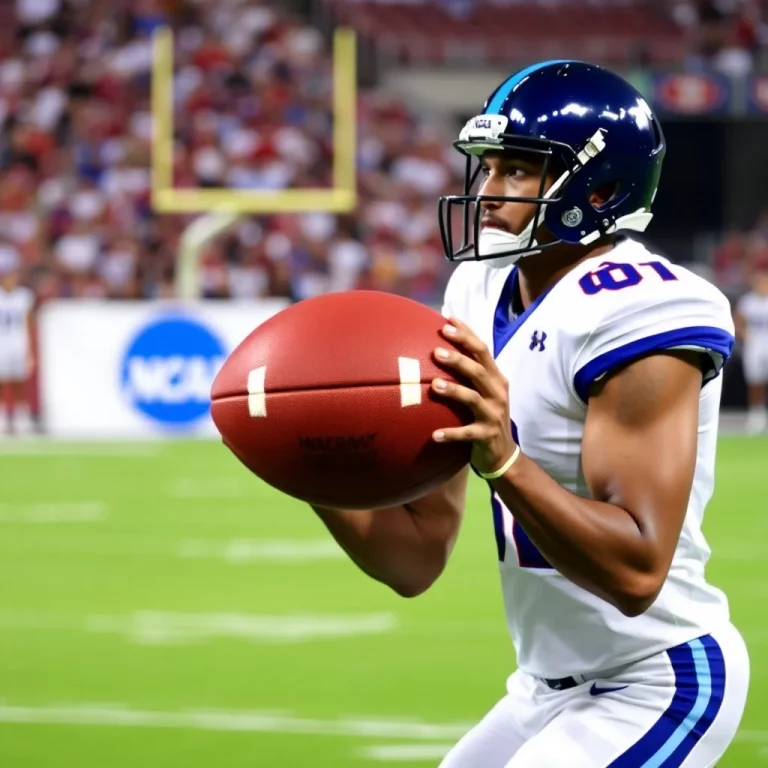NCAA Weighs Proposal for Betting on Professional Sports
INDIANAPOLIS — The NCAA is looking at a new proposal that could change the way athletes and staff members engage with sports betting. This plan aims to allow betting on professional sports but maintains strict rules against wagering on college sports. The Division I Council has made the proposal, which will be discussed this fall. If it gets the green light from Divisions II and III, it will go into effect.
Under this new proposal, the NCAA would still prohibit any form of betting on college sports and sharing information about college events with sports bettors. Additionally, betting-related advertising and sponsorships will not be allowed at NCAA championship events. This change comes as the organization tries to adapt to the rise of legalized gambling across the nation.
NCAA President Charlie Baker and other officials have voiced concerns about the impact of gambling on athletes, particularly with reports of gamblers attacking players on social media. There have also been some allegations against various programs related to betting. The NCAA confirmed on Wednesday that they’re dealing with several betting-related violations involving staff members at member schools over the past few years.
Jon Duncan, the NCAA’s vice president of enforcement, mentioned that the organization’s enforcement staff’s workload related to sports betting has significantly grown. He noted the establishment of a new sports betting integrity unit to effectively detect and pursue potential violations.
In a shift from traditional policies, the NCAA allowed for more flexible reinstatement options two years ago and is currently in a partnership with Genius Sports, which distributes official NCAA data to licensed sportsbooks, prohibiting certain negative betting options.
Josh Whitman, athletics director at Illinois, pointed out that the rules were created when sports gambling was primarily illegal in many places. As betting becomes more accepted, there’s a growing discussion among Division I members about revisiting these rules, especially as they relate to betting on professional versus college sports.
Dr. Deena Casiero, the NCAA’s chief medical officer, believes that allowing betting on professional sports may be more practical than trying to enforce an “abstinence-only” approach. She suggests that this could lead to better education and support for athletes who might struggle with gambling issues.
In related NCAA developments, this week the Division I Board of Directors approved roster limits for NCAA sports as part of a wider $2.8 billion settlement that includes revenue-sharing. Schools will now also have the freedom to award an unlimited number of scholarships within these caps.


